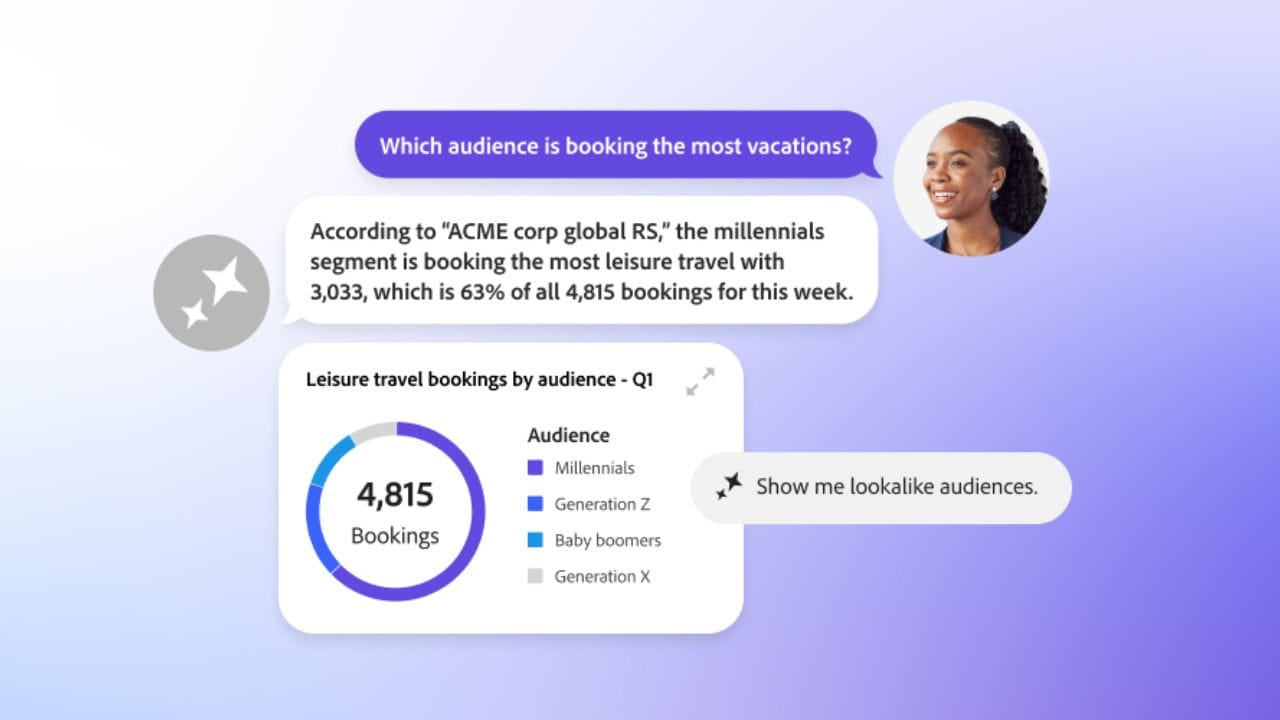Adobe has announced the general availability of Adobe Experience Platform (AEP) AI Assistant, previewed at Adobe Summit in March 2024. This new offering enhances the productivity of experience practitioners through generative AI, while democratizing access to enterprise applications by bringing more individuals into content production and insights workflows. AEP is the solution of choice for organizations to build a single view of customers and engage them on every channel, used by leading brands including The Coca-Cola Company, Major League Baseball, Marriott International, General Motors, TSB Bank, Real Madrid and others. With AEP AI Assistant, brands can now deliver value to their organizations through a conversational interface that provides a deeper understanding of data and an ability to streamline workflows.
Embedded within Adobe Experience Cloud applications including Real-Time Customer Data Platform, Adobe Journey Optimizer and Customer Journey Analytics, AEP AI Assistant can answer technical questions, automate tasks, simulate outcomes, and generate new audiences and journeys. These capabilities are brought to life through generative experience models, which capture Adobe product knowledge and insights based on an organization’s unique data, campaigns, audiences and business goals—all in a brand-safe way and with a privacy-first mindset.
“AI assistants are driving a paradigm shift within enterprise software, dramatically lowering the barrier to entry for new use cases and also first-time users,” said Anjul Bhambhri, senior vice president, Adobe Experience Cloud. “Adobe is in a unique position to provide an out-of-the-box solution that can harness data to deliver insights and automation, given the scale of profiles, campaigns and interactions already being processed through Adobe Experience Platform, including 40 petabytes of data and 5 billion edge interactions per day.”
AEP AI Assistant capabilities include:
Product Expertise: AEP AI Assistant performs a range of operational tasks, providing users of all backgrounds and experience with insights that reduce time spent on problem exploration and resolution. For example, practitioners can now tap AEP AI Assistant to get quick answers to product-related questions such as “How do I build an audience segment?” or “What is an identity map?” while quickly troubleshooting unfamiliar scenarios and reducing the need to open support tickets. Users will also be able to gain operational insights around datasets, audiences and journeys without running SQL queries, with questions such as “How often is my segment used?”
Content Generation and Automation: Brands will soon be able to leverage AEP AI Assistant to generate everything from new customer experiences to audiences for personalization campaigns and visualizations for data analysis. This will include generating entire marketing assets such as emails and web pages with copy, design and images via Adobe Firefly—driving always-on experimentation as a result. AEP AI Assistant will also deliver creative briefs that accelerate content production, auto generated through existing assets such as PDFs, slide decks and Word documents. To support automation, AEP AI Assistant will help teams bypass tedious tasks from organizing data segments into folders to ensuring that AI-generated content meets brand-approved standards.
Predictive Insights and Recommendations: Upcoming capabilities will enable teams to simulate outcomes and optimize their marketing efforts with AEP AI Assistant, all in less time and with greater precision. Users will be able to access predictive insights that answer complex questions in seconds instead of days including “How many conversions should I expect from this segment?” and “How would that change if I applied an additional segment filter?” AEP AI Assistant will also be able to recommend next-best actions such as a custom promotional offer for a specific set of customers, which can boost conversion as a result.
